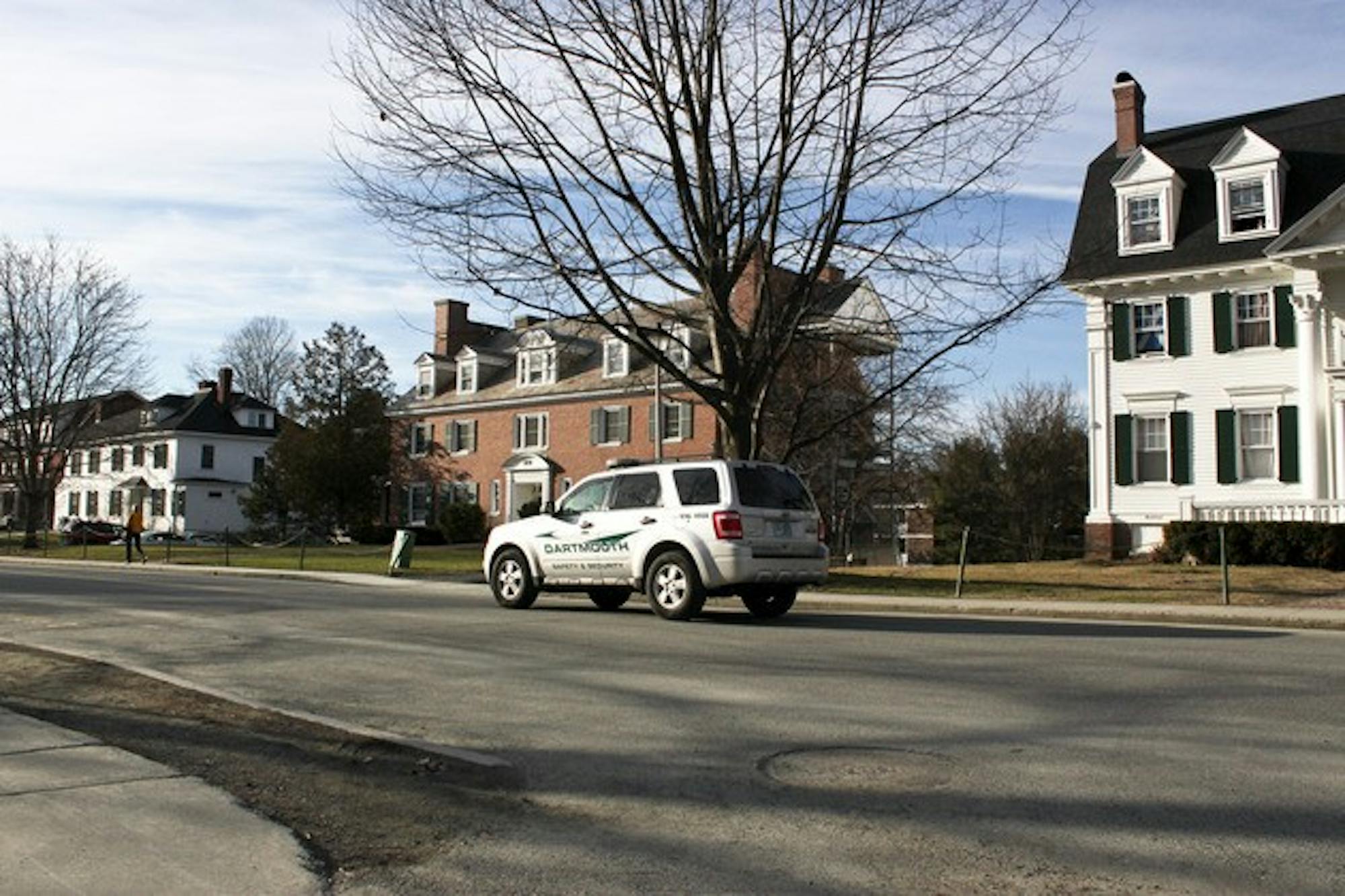Nationwide, the number of women in sororities has increased 8.4 percent from 248,120 women in 2008 to 268,983 in 2010, according to statistics compiled by the National Panhellenic Conference.
Similarly, growing numbers of female Dartmouth students have rushed in the past three years, Panhellenic Council President Ellie Sandmeyer '12 said.
"The increase is nothing too dramatic, but enough to think about expanding system," she said.
Greek affiliation increased from about 64 percent of eligible students affiliated in fall 2008 to 68.2 percent affiliated in fall 2010, according to statistics provided by Greek Letter Organization and Societies Director Wes Schaub. Data for the Class of 2014 is still being compiled, he said.
Sandmeyer said she did not see why the numbers wouldn't continue to increase.
"We've had high levels of interest and many houses doing well," she said. "We try to make sure everyone ends up with a bid, so sororities have had to [take] higher pledge classes than they would ideally like."
The Panhellenic Council will vote on the possibility of opening a ninth sorority, Delta Zeta, on Monday, according to Sandmeyer.
"We need all houses to unanimously support it," she said. "I think generally the presidents are in support of lower class sizes, and it seems a good time."
However, opening a new sorority would be a "logistic nightmare," Sandmeyer said.
Part of the process will involve negotiations with the sorority's national headquarters, which will require extensive resources, according to Schaub.
"If they could come in the right way we would be open to that, but they probably need a couple of terms to get their staff in place," he said.
The expansion of Dartmouth's fraternity system "probably won't happen in the near future," Schaub said.
"There has been discussions with historically African-American fraternities about expanding, and I have been approached by a couple national headquarters looking to expand, but I have not had any conversations with undergraduate students about expanding," Schaub said.
Students at Dartmouth often join Greek houses because of the social outlet they provide, Sandmeyer said.
"It doesn't include the only social space, but it does have the majority of students," she said. "We just don't have a lot of places you can go out in Hanover, so we host a lot of events."
Increased interest in rush may be due to such a large portion of affiliated female students, according to Sandmeyer.
"We have such a large portion of girls in houses, so I think the decision to rush seems easier," she said. "It doesn't seem like a departure from the normal thing to do, and as numbers get higher every year, rushing seems more and more normal."
The sororities also have "great" events and seem like attractive social groups as a part of a Panhellenic community, Sandmeyer said.
"The sorority presidents get along well, and there's no stereotypical animosity between houses, which makes them seem more attractive," she said.
Schaub said that students' tendency to form small social groups contributes to the popularity of Dartmouth's Greek organizations.
"I think that when you go off to college, you get put into class with lot of people, and it's very much human nature to break down into small social groups," he said. "And I think we see that here with people finding small friend groups and joining fraternities and sororities to build those relationships."
Harvard University's Panhellenic Council consists of only three sororities, but 250 women registered for winter rush, The Harvard Crimson reported. The president of Harvard's Panhellenic Council said in an interview with The Crimson that she hopes that the addition of a fourth sorority "may happen soon."
Prospective sorority members said increased interest led to crowded rush events, according to The Crimson. Some prospective members said that Harvard women are more motivated to rush due to the growing popularity of sororities on campus, The Crimson reported.
Harvard's fraternities also reported an increased interest during winter rush, as over 100 men attended Sigma Chi fraternity's first rush event and about 72 signed into Sigma Alpha Epsilon fraternity's first event, The Crimson reported.
Additionally, five of Harvard's six Greek organizations now possesss their own property near campus, further solidifying the presence of Greek life at Harvard, according to The Crimson.
Harvard has not formally recognized sororities, fraternities and final clubs since 1984, when administrators revoked official status due to allegedly discriminatory recruitment policies, The Crimson reported.
At Princeton which, like Harvard, has only three sororities the number of women rushing sororities increased by 28 percent during rush of fall 2011, according to The Daily Princetonian.
Additionally, 100 more men rushed Cornell's 40 fraternities this winter, despite administrative regulations implemented in the fall requiring rush events to be alcohol-free, The Cornell Daily Sun reported. This winter, 800 men rushed fraternities, with 574 accepting bids, according to Cornell Inter-Fraternity Council executive vice president Alan Workman.
Despite increased interest in rushing Cornell fraternities, Cornell's IFC has no plans to add an additional fraternity in the near future, Workman said.
The IFC recently launched an increased awareness initiative and launched a media campaign to highlight leaders in the Greek system using posters and online features to give freshmen a more positive view of Greek life, according to Workman.
"People now more than ever see Greek life as the best key to a social life at Cornell and the best thing you can do for your social life," he said. "It seems like the thing to do, and we've seen upward trends in the last few years."
Cornell's Panhellenic Council recently welcomed its 12th sorority, Phi Sigma Sigma, due to record-breaking numbers of Cornell women joining Greek organizations, The Cornell Daily Sun reported.
With 762 registered students and 595 bids offered, this winter's fraternity rush numbers marked an all-time high at the University of Pennsylvania, The Daily Pennsylvanian reported.
Like Workman, the president of Penn's Interfraternity Council attributed the growing numbers to outreach efforts by the Greek community, according to The Daily Pennsylvanian.




